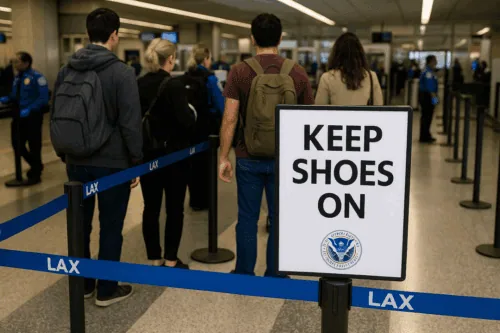Knowing when and how to call out of work is important for maintaining professional etiquette and personal health. Whether it’s due to illness, family emergencies, or other unforeseen circumstances, understanding acceptable excuses to call out of work can help you manage your responsibilities without threatening your job.
This guide provides insights into the most common and justifiable reasons for missing work, helping you navigate these situations with confidence and integrity. Equip yourself with knowledge and prepare to handle work absences effectively, ensuring you remain a reliable and conscientious part of your team.
Common Excuses to Call Out of Work
There are several legitimate excuses why someone might need to call out of work. Ranging from personal health to unpredicted occurrences, here’s a look at some common excuses:
Personal Illness
Calling in sick due to personal illness is one of the most acceptable excuses for missing work. This can include conditions like the flu, fever, or a severe headache that makes it impossible to function effectively at work. Remember, contagious illnesses should especially be a reason to stay home to prevent spreading them to coworkers.
Family Illness
Similar to personal sickness, if a family member is ill and requires immediate care, many employers understand this as a valid reason for employees needing to take time off. It reflects responsibility towards family welfare, which is respected in most workplaces.
Doctor’s Appointments
Often, medical appointments could only be scheduled during business hours. Employers generally consider these appointments justified excuses to call out of work, whether it’s a check-up, a dental appointment, or a specialist visit.
It’s important to handle these situations with sincerity and notify your employer as soon as possible. Discover more about managing work-life balance.
External Resources
Understanding employment rights related to workplace absences is critical. Reliable resources such as the U.S. Department of Labor provide guidelines on employee entitlements and employer obligations under the Family and Medical Leave Act (FMLA).
Overall, it’s essential to communicate effectively with your employer and, where possible, provide appropriate documentation to support your absence. This approach helps maintain trust and minimizes potential disruptions in the workplace.
Medical Reasons: A Justifiable Cause
Health should always come first, and numerous medical reasons can necessitate a day off from work. Here are some common health-related excuses to call out of work:
Scheduled Surgeries
Scheduled operations require preparation and recovery time, which are understandable and generally supported by employers through sick leave or other related benefits.
Unexpected Injuries
Sudden injuries can occur at any time and demand immediate attention. Examples include a sprained ankle or a back injury, which can hinder your ability to perform your job duties effectively.
Chronic Illness Flare-ups
For those suffering from chronic illnesses like arthritis or asthma, certain days might be worse than others. A flare-up can severely limit someone’s capability to work, warranting a day off to manage the condition.
In all cases, transparency is crucial. Informing your HR department or supervisor as soon as possible and providing necessary medical notes can help smooth the process..
External Assistance
For more information on handling work absences due to health issues, visiting recognized sites like the Centers for Disease Control and Prevention (CDC) can be very helpful. They offer guidance on managing health to maintain productivity at work.
This understanding allows employees and employers to handle health-related work absences responsibly and empathetically.
Family Emergencies: A Sensitive Necessity
Family emergencies are another critical reason employees may need to call out of work. These situations often require immediate and personal attention.
Care for Sick Child or Elder
When a child or older family member falls ill, taking care of them requires a day off. This support is essential and generally understood by employers.
Family Crisis
A sudden family crisis, such as a death or urgent household issue, often requires your attention and presence, making it a valid excuse to miss work.
Birthing and Adoption Processes
The arrival of a new family member, whether through birth or adoption, is a momentous occasion that usually requires time away from work.
Employers usually respect these needs, especially when communicated with honesty. For more on family-related work leaves, see our insights on Balancing Work and Family. Being upfront about such emergencies helps maintain transparency and trust with your employer, ensuring mutual understanding.
Mental Health Days: Essential for Wellbeing
Mental health is just as important as physical health; sometimes, a mental health day is necessary to maintain overall well-being.
Stress and Burnout
High stress levels and feeling burnt out can significantly impact your work performance and personal life. Taking a day to decompress can be massively beneficial.
Anxiety or Depression
If symptoms of anxiety or depression are overwhelming, it’s crucial to take time to care for your mental health, potentially with professional help.
Rest and Rejuvenation
Simply needing a day to rest and rejuvenate can be necessary to continue performing well at work and avoid longer-term health issues.
Taking mental health days helps employees and also benefits employers with high productivity and employee engagement.
Inclement Weather: Safety First
Severe weather conditions can pose significant risks, making it unsafe or even impossible to get to work.
Snow and Ice
Heavy snowfall and icy roads can lead to hazardous driving conditions, warranting a day off to ensure safety.
Flooding
Flood warnings often disrupt public transportation and access routes, making it impractical to reach the workplace.
Hurricanes or Tornadoes
During extreme weather events like hurricanes or tornadoes, staying indoors is necessary to ensure personal safety.
Most employers have policies for these conditions and prioritize employee safety above all.
External Resources
Refer to the National Weather Service’s Safety Tips for updates and safety tips during severe weather.
Ultimately, your safety should always come first, and most companies support this stance.
Transportation Issues: Unavoidable Delays
Transport disruptions are common and often unforeseeable excuses to call out of work, impacting your ability to arrive on time, if at all.
Vehicle Breakdown
If your car breaks down unexpectedly, it can prevent you from commuting safely to your workplace.
Public Transport Strikes
Occasional strikes or operational halts in public transportation systems can leave you with no way to get to work.
Road Closures
Unplanned road closures due to accidents or maintenance work can also significantly delay travel time.
External Tools
It’s useful to keep track of traffic and public transit updates through reliable sources like the U.S. Department of Transportation for up-to-date information.
Although frustrating, most employers generally acknowledge transportation issues as a valid reason for being unable to attend work.
Legal Obligations: Jury Duty and More
Legal commitments such as jury duty or court proceedings are valid excuses to call out of work, often mandated by law.
Jury Duty
Serving on a jury is a civic duty that employers must accommodate legally, often with specific policies in place.
Court Appearances
Attending court as a witness or for personal legal matters requires taking time off from work.
Legal Advisements
Meetings with legal counsel for urgent matters also justify work absences.
It is usually necessary to provide official documentation to your employer to support the absence for legal reasons.
External Resources
For more information on your rights and responsibilities regarding jury duty, visit the U.S. Courts website.
Employers generally understand and respect legal obligations as valid reasons for employees to miss work, ensuring compliance with the law.
Volunteering: Contributing to the Community
Volunteering for a significant event or emergency can also validate excuses to call out of work, often seen positively by employers.
Community Service
Participating in scheduled community service activities can require a day off, particularly for events organized by non-profits or community groups.
Disaster Relief Efforts
Helping with disaster relief efforts following events like floods or wildfires is a crucial and urgent need that workplaces typically honor.
External Appreciation
Engaging in these activities supports the community and enriches personal growth and network. It’s a win-win for both the employee and employer.
Learn More
Additional details on volunteering rights can be found on the National Service website.
This is another valid reason to take leave, aligning personal interests with community benefits.
FAQs
What should I say when I call out of work?
Be honest and brief. Explain your situation clearly without providing unnecessary details.
How often is it acceptable to call out of work?
While it varies by workplace, frequently calling out can affect your job performance and perception of reliability.
Is it necessary to provide proof for a sick day?
Some employers may require a doctor’s note if the absence lasts more than a couple of days.
Can I be fired for calling out of work?
If absences become excessive without proper justification, employers may consider termination as per company policy.
Can I use personal days for other activities besides emergencies?
Yes, personal days are typically provided for you to use as you see fit, whether for rest, errands, or other personal matters.
How can I request a day off that is less disruptive?
Notify your supervisor as early as possible and help prepare for your absence by delegating tasks or shifting deadlines if necessary.
What about mental health days? Are they commonly accepted?
Increasingly, workplaces recognize the importance of mental health and accept this as a valid reason for absences.
Conclusion
Understanding valid excuses to call out of work, from personal and family health issues to unexpected emergencies, helps maintain a balanced professional life. It’s crucial to communicate honestly with your employer and provide necessary documentation when applicable to foster a trusting and understanding workplace environment.
Are you seeking an inclusive workplace that respects and understands the need for a reliable work-life balance? Join Diversity Employment and upload your resume today! Find opportunities with employers who value diversity and employee well-being. Discover a workplace where your professional and personal needs are acknowledged and supported.
Stay connected with our free diversity jobs board and navigate your career path with employers who care!




